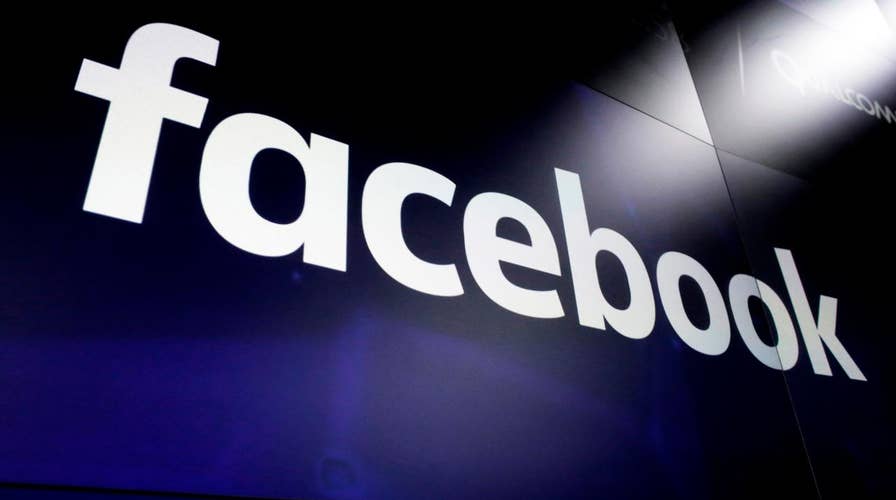Facebook on defense again after report claims they gave other tech giants even more access to private user data
Internal documents obtained by the New York Times claim Facebook struck deals with 150 companies to give special windows into users' private data without consent; Alicia Acuna digs into the report.
The tech giants of Silicon Valley, particularly Google and Facebook, have faced intense criticism in recent years for promoting partisan political agendas in the workplace. Twitter CEO Jack Dorsey even admitted recently that conservative employees at his company “don't feel safe to express their opinions.”
To gain a clearer grasp of just how big a problem viewpoint intolerance is in the tech community, Lincoln Network commissioned a study that surveyed over 1900 tech professionals from across the country.
The results of the study, released this week, confirm a stunning level of viewpoint intolerance in the tech community. Analysis suggests that if companies are going to promote a political agenda, they must be more intentional about pushing tolerance efforts.
Nearly half of Lincoln’s 2019 Viewpoint Inclusion Survey respondents believe their companies promote a political agenda – specifically, a left-leaning one, with 47.7 percent of respondents saying their respective company has a clear liberal agenda, as opposed to the 37.9 percent who reported a conservative agenda.
Of these respondents, nearly half say the ideological atmosphere affects their ability to simply do their jobs. One respondent who identifies as “very liberal” says a previous employer in the tech industry encouraged political discussions that disrupted his work. “There was a lot of disharmony among employees,” the respondent said.
The experiences between employees at agenda-driven companies and those whose employers do not promote a specific agenda is vastly different. At agenda-driven companies, a startling 63 percent of tech professionals report that workplace ridicule is commonplace if you disagree with a colleague – a stark contrast to the 21 percent of employees who feel that way at their apolitical workplaces.
One respondent who identifies as a moderate at an agenda-driven company expressed hopelessness over the issue of intolerance: “I am happy, with the exception of my time at work where I feel like the choices I have made in my beliefs label me as stupid, a bigot, deplored, and more. ... I am coming to the conclusion that we cannot live or work together any longer.”
Companies that promote political agendas are not only fostering stifling work environments; they are also contributing to political radicalization much more than companies that do not push an agenda, intentionally or not.
At agenda-driven companies, a startling 63 percent of tech professionals report that workplace ridicule is commonplace if you disagree with a colleague – a stark contrast to the 21 percent of employees who feel that way at their apolitical workplaces.
Respondents on the far right and the far left indicate higher levels of intolerance in the workplace than more moderate tech professionals. Employees who identify as either “very liberal” or “very conservative” are the most likely to support the termination of fellow employees who express “offensive” views outside the workplace. Moderates, on the other hand, tend to disagree with the termination of employees for expressing offensive views.
There also seems to be significant pressure on tech employees to either conform to their companies’ political agenda, or to leave. What’s more, nearly half of tech employees who identify as “very conservative” report knowing someone who did not pursue or left a career in tech due to perceived ideological conflicts with their respective companies.
One libertarian respondent mentioned that the CEO of his company explicitly asked anyone who voted for Trump in 2016 to resign. He said, “I find that unprofessional, uncalled for, and it pretty much guarantees that the dozen conservatives working at the company are afraid of being outed.”
Perhaps the most alarming piece of data from the report is the tech industry’s blindspot, wherein respondents who condone intolerant workplace behavior wrongly believe their companies’ atmosphere encourages viewpoint tolerance. The same respondents on the far left and the far right who say they want to see their coworkers fired for expressing offensive views outside the workplace are, paradoxically, more likely to believe that their companies value inclusion.
If this dissonance is left unaddressed, workplace tension will only grow worse heading into a tumultuous 2020 presidential cycle.
While the survey results reveal an epidemic of polarization and intolerance in Silicon Valley and the broader tech community, it presents an important opportunity for tech leadership to cultivate a culture of viewpoint inclusion.
Lincoln Network defines viewpoint inclusion as the active, intentional practice of fostering a positive work environment for all employees that emphasizes “intellectual humility, empathy, trust, and curiosity,” (adapted from Heterodox Academy’s definition of “viewpoint diversity”).
Viewpoint inclusion empowers colleagues to affirm each other’s value to the company, regardless of personal views. If companies are going to promote a political agenda, they must actively push tolerance efforts by establishing a culture that promotes true tolerance.
Of course, tech companies have every right to set their own cultural norms, including terminating employees for cultural fit issues. And any employee that exhibits racist, sexist, homophobic or bigoted behavior unquestionably has no place in a healthy and inclusive workforce.
But with the 2020 election cycle already kicking into high gear, the risks are great if the tech community ignores its intolerance problem. Inaction would mean continuing to stumble down a perilous path that ratchets up internal tensions and erodes trust among many consumers.
CLICK HERE TO GET THE FOX NEWS APP
Tech companies fuel America’s innovation engine and have incredible influence over our culture. If they choose to model tolerance and empathy in the workplace, imagine how that attitude might infuse their online platforms with the same qualities.
If the tech industry takes these results to heart, and truly creates a culture of viewpoint inclusion, it could be a powerful catalyst – not just for better margins in Silicon Valley, but also for the healing of our national political discourse.


